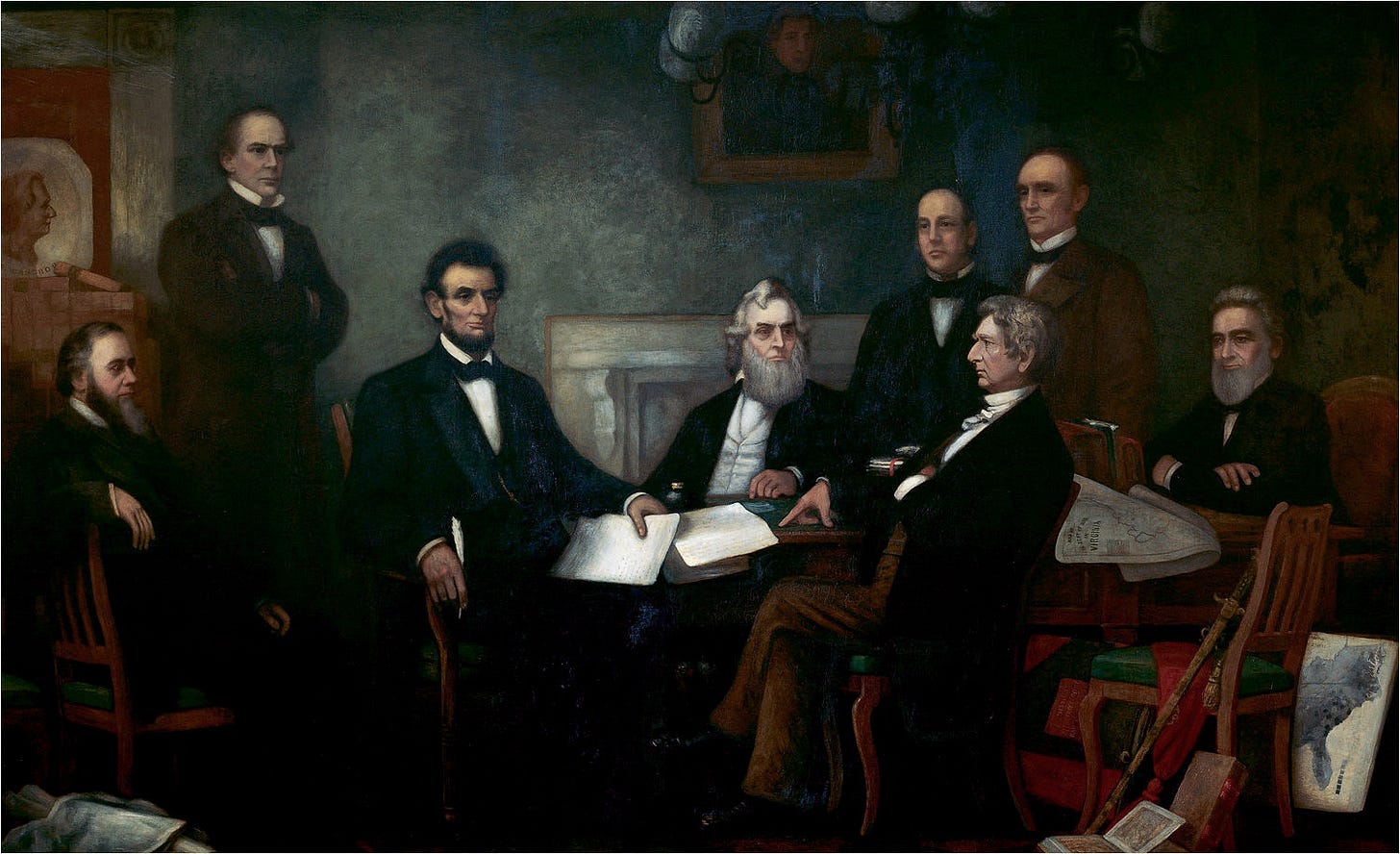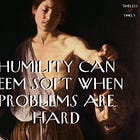The Grace of Power & the Power of Grace
Victory without magnanimity is no victory at all.

“If you are ferocious in battle, remember to be magnanimous in victory.”
— Commander Tim Collins, 2003
Over recent days, we’ve seen emotions run high as varying segments of the public have had their attention on contests at the ballot box and on the baseball field. Observers chose a side and waited — sometimes into the wee hours — for victory for their side.
From the earliest age, we’re instructed in the moral pageantry of defeat. Don’t be a sore loser, the adults admonish, ushering us toward the handshake line as if toward confession. We are told to smile, to nod, to congratulate the opponent who has just humiliated us on the field or at the spelling bee.
The lesson, though seldom stated outright, is that civilization depends on the theater of grace.
But then comes the corollary, equally important: don’t be a sore winner. No one loves a braggart, least of all the vanquished. To gloat, to sneer, to strut about the ashes of one’s foe is to reveal the savage beneath the suit.
Grace, in both triumph and defeat, is what separates the human from the barbarian, the leader from the tyrant.
Part Restraint, Part Courtesy
In the Bible, we find the concept of grace in the term charis, which originates from the Greek word chairo (to rejoice, be glad). What a profound message: that joy and optimism are possible after being tested.
In ancient Greece, Aglaia (Brightness), Euphrosyne (Joy), and Thalia (Bloom), were the daughters of Zeus known as the Three Graces. They embodied the art of being generous without expectation, radiant without arrogance. Their beauty was less about symmetry than about restraint; their charm, a reminder that power without courtesy curdles into cruelty.
To show grace is to understand the fragility of victory. It is the awareness that fortune is fickle, that today’s triumph may become tomorrow’s ruin.
And it is to extend goodwill in spite of that knowledge — a gesture of civilization against the entropy of human pride.
The Civility of Grace
Few understood this better than Colonel Joshua Chamberlain, the professor-turned-soldier who defended the Union line at Little Round Top on the first day of Gettysburg. His regiment, the 20th Maine, held the flank, and in doing so, may have preserved the Republic.
Yet Chamberlain’s most enduring act of leadership came not in the roar of cannon but in the silence that followed. Two years later, at Appomattox, when the Confederate army surrendered, Chamberlain ordered Union troops to dip the regimental colors as a sign of respect for a beaten foe.
Grace amid the ruins.
After four years of slaughter — 620,000 dead, the nation in tatters — he recognized that victory without dignity would only sow the seeds of another war. His salute was not an endorsement of the Confederate cause but an act of national reparation.
In the ashes of hatred, he planted the seed of reconciliation.
“We are not enemies, but friends. We must not be enemies. Though passion may have strained, it must not break our bonds of affection. The mystic chords of memory will swell when again touched, as surely they will be, by the better angels of our nature.” ― Abraham Lincoln, 1861
The Team of Rivals
Abraham Lincoln, too, understood that power unguided by grace corrodes from within. Elected by a narrow margin and distrusted by the grandees of his own party, he could easily have surrounded himself with flatterers.
Instead, he did something astonishing. He invited his rivals — Seward, Chase, Bates — to join his cabinet. Men who had dismissed him as a country bumpkin now sat at his table. What might have been a nest of vipers became, by Lincoln’s quiet magnanimity, a council of purpose.1

He tamed ambition not through domination but through inclusion. In doing so, he exemplified what Machiavelli never quite grasped — that mercy, properly wielded, is the highest form of strength.
Grace is not weakness. It is the moral architecture of leadership—the invisible scaffolding that allows nations and individuals alike to rebuild after ruin. Without it, every victory is Pyrrhic, every peace temporary.
The City on a Hill
Ronald Reagan borrowed from the Puritans when he described America as “the shining city on a hill.”
The phrase, sanctified by time, implies responsibility rather than triumphalism. A city that shines does so to illuminate, not to blind. Lincoln called upon our “better angels,” Reagan invoked our “shining city.”
Both understood that national greatness, like personal virtue, depends upon the grace to act well when one could act otherwise.
The history of the Republic is a ledger of magnanimity and meanness, of gestures noble and petty. We are a people capable of both.
The experiment of democracy itself is a test of grace — whether we can disagree without dehumanizing, compete without cruelty, win without boasting, and lose without despair.
Grace is the oil in the machinery of freedom. It allows the rough gears of ambition and ego to turn without seizing. Without it, the engine of self-government burns itself out.
So we might do well to recall, in this era of rancor, that we are not enemies but friends; that our shared enterprise — call it civilization — depends not merely on victory, but on the civility of those who prevail.
To show grace is to have the self-awareness to demonstrate humility and to treat others with dignity.2
May God shed His grace on thee, as the hymn implores.
The challenge, of course, is whether we can shed a little of it on one another.
There’s so much to learn,
Related items from our Archives
For the definitive account of this, see Doris Kearns Goodwin’s Pulitzer Prize-winning Team of Rivals.
Browse the Archives on these topics and dozens of others.







💕